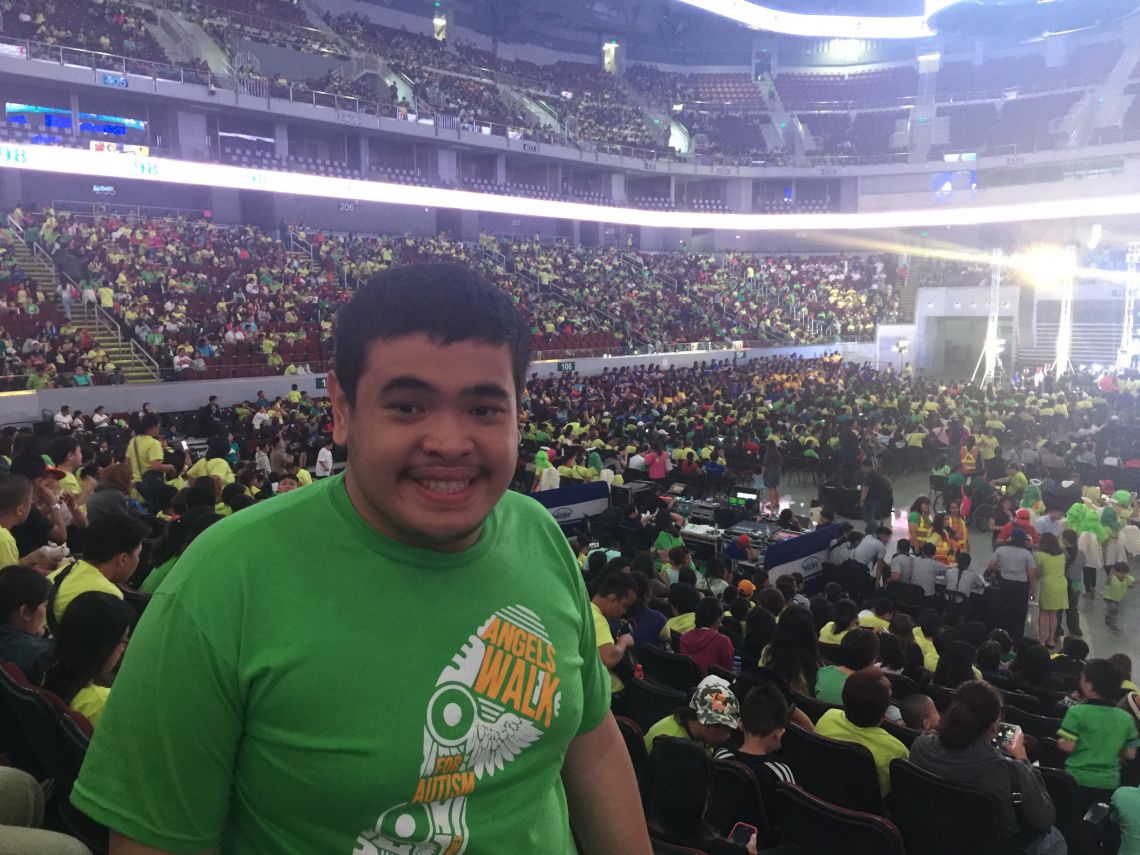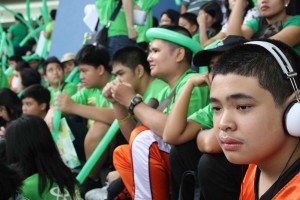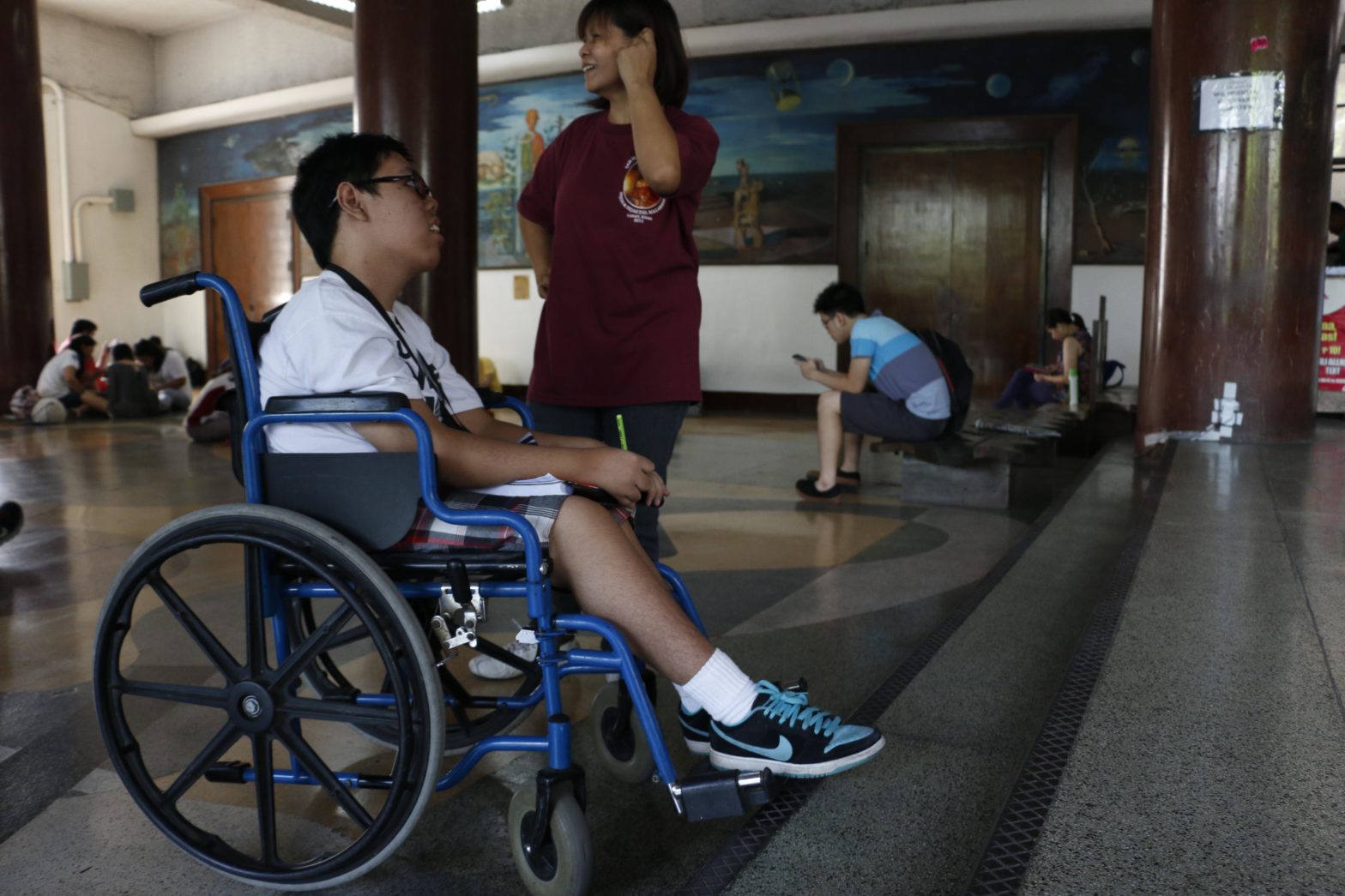Autism advocates have found a good answer to that Miss Universe question asked of Miss Philippines last week: What is the most significant change you have seen in the last 10 years?
Autism Society Philippines (ASP) witnessed that change as 20,000 people descended on the Mall of Asia Arena on Sunday for “Angels Walk 2017,” an autism awareness campaign that began in 2000 with barely 200 advocates. Last year 15,000 came.
As the number of Persons with Autism (PWA) in the Philippines grew, so did the number of advocates. ASP estimates about 1.2 Filipinos belong to the autism spectrum. In 2012, there were reportedly only about half a million.
As in the previous years, the Autism Walk kicked off the Philippines National Autism Consciousness Week from February 5 to 11. And this year, for the first time, a big celebrity showed support for the advocacy. Asia’s songbird Regine Velasquez-Alcasid inspired the PWAs, their families and fellow advocates, and pledged to attend next year’s Angels’ Walk to sing again. ASP revealed the singer is supporting Bridges Foundation, a school for special students.
And after years of “walking” to raise awareness of their inclusivity in society, the “angels” have grown up. They reaped the change they have walked for with 200 PWAs now employed in various companies. Last Sunday they celebrated the success stories of Yanna Aragon, Mike Almendrala and Matt Somera, three of those PWAs now employed by companies accepting diversity.
ASP national president Mona Veluz said people with autism are hired no longer out of charity but because of their eligibility, having special skill sets valuable to their jobs.
Aragon is a variable resource administrator at IBM Philippines. Almendrala is an administrative assistant at the Philippine Information Agency. Somera is a stock attendant at a branch of SM’s SaveMore.
Somera said he opened a bank account using his first paycheck and he will save more with his salary from SaveMore supermarket.
Engineer Bien Mateo, SM Cares’ Program for People with Disabilities (PWDs) project manager, announced SM’s intention to hire more people with autism in the coming months in more malls and even outside Metro Manila “not only to set an example to other companies but in recognition of the strengths of PWAs in the workplace, which can become any company’s competitive advantage.”
“For the welfare of a maturing population of people on the spectrum, care for persons with autism must transition from the confines of the home and school to universities, businesses and workplaces,” ASP said. “We hope to inspire awareness, acceptance, accommodation and appreciation of autism in all sectors of society.”
On the government front, ASP expressed gratitude for the law that expanded the benefits and privileges of persons with disabilities. Republic Act 10754 that was passed last year under the Aquino administration, its implementing rules and regulations (IRR) signed under the Duterte government.
Social Welfare Undersecretary Malou Turalde-Jarabe assured everyone of government’s support in promoting and protecting the rights of PWAs.
“As the primary mover for the social protection of the country, DSWD will push for inclusion in the Philippine development plan the rights and welfare of our PWDs and PWAs, that they will be promoted and protected. We will ensure measures in terms of policies, programs and services that will be implement for the rest of the country,” Jarabe said on Sunday.
Leyte Rep. Tedda Marie Romualdez, wife of former congressman and co-author of RA 10754 Martin Romualdez, underscored the importance of the implementation of the law and its IRR as the way forward to support PWAs.
RA 10754 seeks to provide persons with disability the opportunity to participate fully in mainstream society by granting them at least 20 percent discount and exemption from the value added tax on the sale of certain goods and services identified under Republic Act No. 9442 (Act Amending the Magna Carta for Disabled Persons) for the exclusive use, enjoyment or availment of persons with disability.

Giancarlo Miguel Deogracias, 21 was diagnosed with autism at age 3. He has been doing Angels Walk for Autism since 2009.
But most significant change is for this awareness to spread to the community of 10 for an Autism-ok. The “walk” for autism goes regional with this multi-sectoral call for making the changes needed to build an autism-inclusive global society.
With the Philippines assuming chairmanship of the Association of Southeast Asian Nations this year during its 50th anniversary, ASP also assumes the chairmanship of the ASEAN Autism Network (AAN).
AAN works at the National and Sub-regional levels to advocate for the rights of Persons with Autism and support self-advocates to form their own groups at the community level.
There are still no available data in the official registry or on public record of the number of PWAs living in ASEAN. But ASP uses estimates of the United Nations that at least PWAs in every country account to about one per cent of the population. With this reference, in Brunei there are at least 4,000 PWAs, Cambodia about 157,000, Indonesia has 2.5 million, Laos 71,000, Malaysia 307,000, Myanmar 522,000, Philippines 1.2 million, Singapore 6,000 and Vietnam 926,000.
But actual government figures per country in Southeast Asia vary because autism in some ASEAN member states is categorized under learning disabilities along with other cognitive and developmental disabilities.
Vietnam held its first ever Autism Awareness Day only last year and reported an estimated 2,000 Vietnamese with autism. Studies on autism in Asia in 2012 showed that Thailand has about 180,000 PWAs. In Malaysia, a local survey conducted in 2008 revealed that autism affects one in 625 children.
AAN was established by the Asia Pacific Development Center on Disability in Bangkok in 2010 with a mission to support, assist, facilitate and enhance autism-related family support groups in collaboration with other stakeholders in the ASEAN region and globally. One of the main objectives is to educate, develop, and give opportunities for autism-related family support groups of each member country, helping them to grow towards achieving global standards with reference to the United Nations Convention on the Rights of Persons with Disabilities and other international and regional instruments related to autism.
Talk about significant change, last Sunday autism advocates were one in that arena, and with their unity they continue to make a big difference for the future of people with autism.



